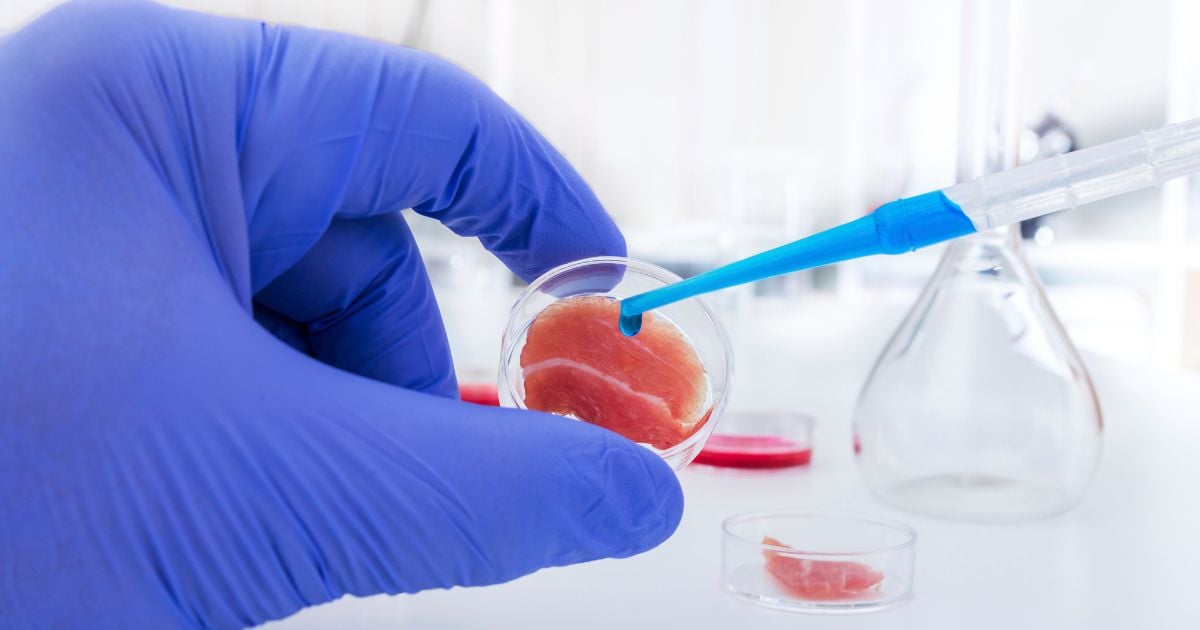Unless you’ve missed the news, you will know that Singapore approved the sale of lab-grown meat in 2020, making them the first country to do so.
Yes, lab-grown meat.
It was first introduced in Singapore in 2020 by American food manufacturer, Eat Just, in the form of cultured chicken.
While lab-grown meat can sound off-putting, it is not as suspicious as it sounds.
What is Lab-Grown Meat Made Of?
Lab-grown meat is meat derived from animal cells. It is typically grown in steel tanks. The process begins with cell samples, which are then nourished in a nutrient-rich solution, allowing them to grow and multiply into muscle tissue. This tissue can be formed into various meat products, such as nuggets or ground meat.
While this method doesn’t involve animal slaughter, it’s not considered vegan due to its animal-derived origins.
Lab-Grown Meat Might be Common in Singapore
Singapore is advancing as a centre for cell-cultured food research, aiming to enhance food security through initiatives like the Bioengineering Tools for Next-Generation Cellular Agriculture program launched in 2023.
The plans for this programme include creating sensors to detect signs of contamination in cell-based foods during product and developing compounds without antibiotics to prevent contamination.
I’m sure you already know that Singapore mainly relies on imports for its food supply. Considering factors like climate change, extinction of species etc, it’s a matter of time before we all have to eat lab-grown meat.
The good news is our Muslim friends will be able to consume lab-grown meat if the cells are from animals that are halal and do not contain any non-halal components.
Halal foods are food that made, produced, manufactured and processed according to Islamic Law.
This was stated by Dr Nazirudin Mohd Nasir, the Mufti of Singapore, on 2 February, during a two-day conference on fatwa in contemporary societies.
To provide further context, Mufti is a Muslim legal expert who gives rulings on religious matters and fatwa is a formal ruling on a point of Islamic Law given by a Mufti.
Dr Nazirudin highlighted that “this decision is an example of how fatwa research has to evolve with modern technology and social change.”
Furthermore, he mentioned we could not only be the first country to produce lab-grown meat, but also the first to ensure that it is halal.
There was previously no Islamic ruling regarding the consumption of lab-grown meat. However, Mr Masagos Zulkifli, Minister-in-charge of Muslim Affairs, mentioned that the Islamic Religious Council of Singapore (Muis), has been studying this topic since 2022.
Dr Nazirudin acknowledged that some might argue that there is no need for these food sources as the Muslim community should continue enjoying “real food”. However, he stated that Muis had cautiously made this decision. His committee had even visited the laboratories where the meat is grown.
Dr Nazirudin highlighted that they aim to work towards an Islam that “seeks to preserve and protect all human life and secure all forms of well-being” rather than limiting who and what they work with.



